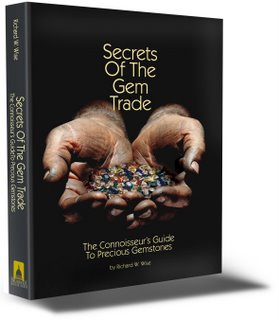by Richard W. Wise, G.G.
©2006
Insurance premiums are based upon the replacement price stated in the appraisal document. Insurance companies are well aware of the practice of inflating value, a practice they could eliminate it with the stroke of a pen. They purposely choose not to do so. In fact they are more than willing participants in a defacto fraud that makes them huge profits.
Most insurance policies contain a clause that allows the company to replace a lost item with “like kind and quality.” Insurance companies maintain ongoing relationships with certain jewelers and manufacturers that allow them to buy at wholesale. You insure at retail, they replace at wholesale or in the case of the example sited above they collect a premium based on five times the retail price year after year and if a claim is filed they replace at their cost which may be a fraction of the insured value.
I have personally seen instances where insurance companies will try to replace fine handmade originals with generic pieces of production jewelry. In one instance one of our clients lost a one of a kind handmade ring set with a rare fine quality
Not all insurance companies engage in this sleazy slight of hand. I have worked with Chubb and it is one example of a company that will pay the full insured value when an item is lost with no questions asked. My understanding is that Chubb charges higher premium but you get what you pay for.
There are obviously some cases where the replacement cost will be higher than the selling price. The obvious example is an appraisal done years after the purchase. Another example is the ruby sighted in the previous post. After my trip to  replace that stone for the price the client paid. In these sorts of cases both should be included in the appraisal and then it is up to the client, in consultation with the insurance company to decide what level of risk he or she is willing to assume.
replace that stone for the price the client paid. In these sorts of cases both should be included in the appraisal and then it is up to the client, in consultation with the insurance company to decide what level of risk he or she is willing to assume.
READ ON; Secrets Of The Gem Trade is now 30% off for a limited time. All the secrets for only $27.95. Read a sample chapter or ORDER NOW: www.secretsofthegemtrade.com




No comments:
Post a Comment